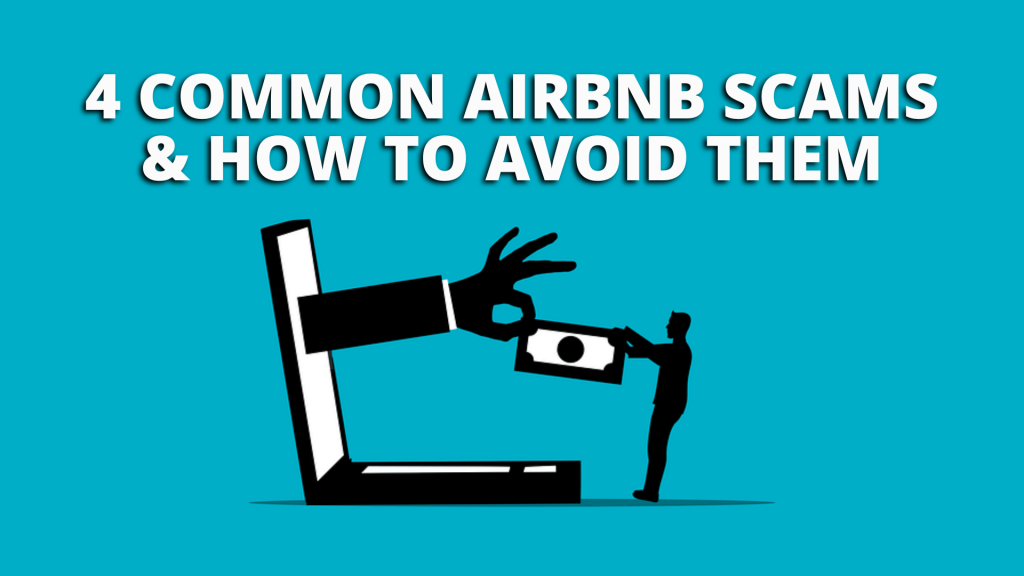As many of you likely know, Airbnb is a platform where hosts can upload properties that users can rent out for a couple days. It offers an exciting alternative to hotels for many vacation-goers and is usually very safe and secure.
However, like many websites that mediate transactions between two individuals, there are some scams that you need to watch out for. Let’s take a look at a couple scams that target hosts and a couple that target the user.
Contents
overpaying
For this scam, the scammer will reach out and say they want to stay at your property but their company will have to send a certified check to pay for it. This is just a clever way for them to avoid paying through the Airbnb website.
They will send you a check, but they will soon reach out again and say they accidentally sent too much and ask you to send a check back to them with the amount that they overpaid. If you sent them a check back, you will likely never hear from them again and you will lose whatever amount you sent them. Plus, if you try to cash in the original check they sent, it will not clear.
We have actually had a couple people try to use this scam on us. For me, as soon as someone wants to pay offsite, that raises some red flags.
There are a couple keys to avoiding this scam. First, if anyone offers to pay offsite, be wary. Second, if anyone actually does send you a check, try cashing that before sending them any money back. The odds are very high that it won’t clear and then you’ll know not to send any money back.
uninvited guests
Another common scam that is much harder to avoid is renters inviting more people than the property can hold. This may not really be a scam as much as it is users not being upfront or honest with hosts.
Sometimes users like to invite their friends over, and every now and then, it can get out of hand. This is actually something that Fort Worth takes very seriously. We recently posted a blog on how Fort Worth is cracking down on their Airbnb regulations (which you can read here). One of the biggest reasons brought forward against Airbnbs was the way that parties can get out of hand and disrupt the peace.
There are many cities that have rules about how many people are allowed to stay at a rental property and if the host is caught with more, they can get in a lot of trouble.
This is nearly impossible to avoid this problem on the front end of the transaction. The best way to handle this is to terminate the rest of the visitors’ stay if they violate the policies. It’s also helpful for hosts to leave reviews of guests. This will help out other hosts by showing a history of problematic behaviors at stays.
Multiple listings
If you’re a guest and you’re trying to find a property, this is a scam that you need to be aware of.
Sometimes hosts will put up multiple listings for the same property, marked at different prices. Usually, one listing is priced normally and the other is priced significantly lower. Their goal is to double book the property and start a bidding war between the two guests who have reserved the property for the same time. Whoever is willing to pay more gets to stay and the other reservations are canceled.
There are also some hosts who will post multiple listings at different prices, double book, then take whichever is higher with no bidding war necessary. If you’ve ever had a reservation canceled for no reason, this might be why.
This can also be a tricky scam to avoid. There are some red flags to look out for but very rarely can you 100% verify that the property is double-booked. If the rental seems very cheap compared to the others around it, be wary. If it’s nice and extremely cheap, definitely be wary. It usually is too good to be true.
Luckily, it seems like this is something Airbnb is aware of and taking seriously. In our experience, it is very hard to get a second listing posted. When we moved away from our old management company and tried to post a listing for that same address, we had to go through a lot to get it approved.
paying off-site
I just warned the hosts about users trying to pay off-site, but the same goes for users trying to book a stay. If the host asks you to pay off-site for any reason, that’s a red flag. Paying off-site strips away a lot of security measures and any issues can become your word against theirs.
I imagine this happens a lot more with long-term bookings because if you’re staying somewhere for 3 months, it could theoretically be easier to simply Venmo them or pay another way when the rent is due. However, doing so can cause a lot of problems for you.
As an Airbnb host myself, I can tell you that there is no real reason that I can think of that would necessitate paying off-site. If a host asks you to do so, I would refuse or find somewhere else to stay.
conclusion
These are four common scams that any user on Airbnb should be aware of. Whether you’re a host or a user, you should be on the lookout for these red flags and be wary of sketchy behavior.
If you have any questions, want to know more, or would like to buy or sell a property, don’t hesitate to call the number on our website. We would love to help you with all your real estate needs.
Follow us on social media to stay up to date with all of our content, including clips from our weekly podcast where we talk about everything real estate, investing, and Dallas-Fort Worth.






